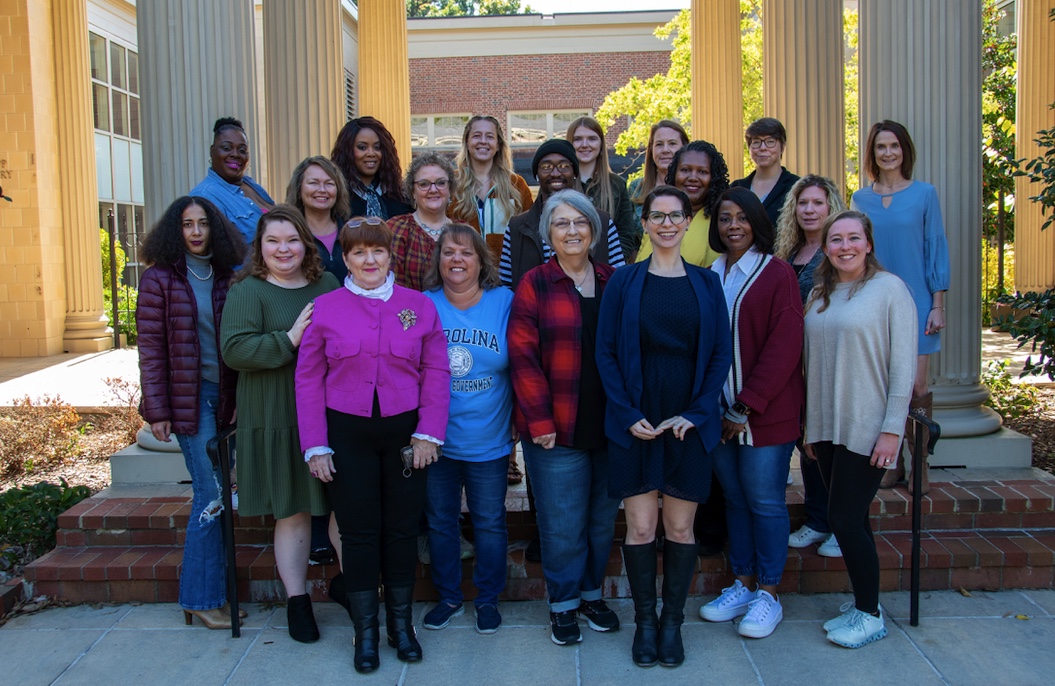In a First, the 2022 Clerks’ Certification Institute Transitioned to Hybrid Learning
As much of the world navigated the transition back from fully remote to in-person learning last year, the UNC School of Government’s Clerks’ Certification Institute (CCI) took a decidedly hybrid approach to its administration.
Split across four weeks during 2022, 25 in-person and 45 remote students joined CCI for its first-ever hybrid course. In one of its largest classes in program history, 70 clerks graduated last fall with an in-depth knowledge of local government structures and authorities.
Often cited as “the hub” of bustling city and county halls, clerks perform vital duties that touch nearly every aspect of local government law – keeping records, giving notices of meetings, approving ordinances, tracking finances, and performing various other functions necessary to ensure the smooth operation of daily governance.
The 2022 program was the first taught by Kristina Wilson, who joined the School of Government faculty in September 2021 and took over the curriculum from former faculty member Trey Allen.
Keenly aware of the breadth of responsibilities clerks shoulder in their roles, Wilson was eager to offer remote access to the program—expanding education to clerks whose limited travel budgets may prohibit in-person learning opportunities.
Transitioning the program to a hybrid delivery model was not without its challenges. To ensure identical quality of instruction and a sufficient level of interaction between in-person and remote learners, Wilson assembled a collaborative, multidisciplinary team from the School.
“Successfully conducting a hybrid institute required massive teamwork from our IT team, facilities team, program managers, and instructors,” she said. “Despite some stumbles along the way, I believe the hybrid model was successful and afforded online learners a similar quality of experience to the in-person students.”
Jennifer Bracy, Town of Ahoskie clerk, completed one of her program sessions remotely. It was an opportunity, she said, to learn and connect with clerks from varying backgrounds and hailing from all corners of the state.
“It helped improve the learning experience because it allowed for speakers and other clerks to participate even if they could not make it in person,” Bracy said. “It gave everyone in the class the ability to participate and hear from people all across North Carolina.”
Bracy praised the hybrid instruction, expressing that the ease of access to information made learning possible—whenever and wherever.
“The hybrid format was more accessible to me,” she said. “I appreciated that all the information was online. Any information we needed was available within a few clicks through Canvas.”
At the conclusion of the program, Bracy expressed gratitude for the wealth of knowledge—and the friendships—she gained along the way.
“One of the best things in the class was the knowledge I gained that will help me become a better clerk,” she said. “Another is the friendships that were made that will last a lifetime.”
First offered at the Institute of Government in 1980, CCI enrolls clerks, deputy clerks, and assistant clerks to city councils and boards of county commissioners. The annual course examines government structures and authorities. Many other topics relevant to the duties of city and county clerks are covered: open meetings law; public records law; statutory public notice requirements; preparation of minutes and agendas; ordinance approval, filing, and codification; local government finance; and board procedures.
Following the completion of the 120-hour curriculum, graduating clerks become “Certified Municipal Clerks” through the International Institute of Municipal Clerks.
Published February 16, 2023



